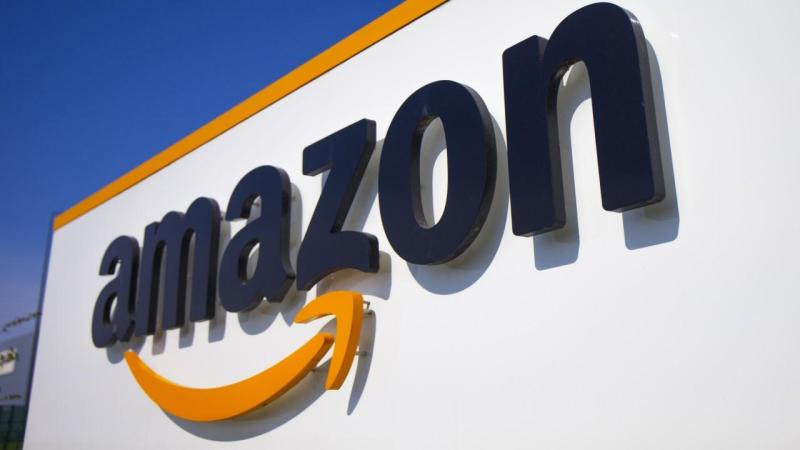Amazon argues Prime Video customers don't own purchased content



According to Amazon , Prime Video customers do not actually own the content that they purchase on the streaming service .
Instead, the tech giant is now arguing that Prime Video customers are actually paying for a limited license for “on-demand viewing over an indefinite period of time.”
Amanda Caudel of Fairfield, California brought Amazon to court for unfair competition and false advertising back in April, alleging in a lawsuit that the company "secretly reserves the right to terminate the consumers’ access and use of the Video Content at any time," and has done so on numerous occasions.
Caudel argues the company has deceived, misled and defrauded consumers by selling content at substanially higher prices while giving customers the impression that they own it. Her suit notes that Prime Video content is sold at a premium price at an average of $14.99 per movie, compared to only $5.99 to rent that same content.
On Monday, Amazon filed a motion seeking to dismiss her complaint, arguing that she "fails to allege a cognizable claim under any legal theory" because she isn't an injured party.
"Plaintiff claims that Defendant Amazon’s Prime Video service, which allows consumers to purchase video content for streaming or download, misleads consumers because sometimes that video content might later become unavailable if a third-party rights’ holder revokes or modifies Amazon’s license," lawyers for Amazon wrote. "The Complaint points vaguely to online commentary about this alleged potential harm but does not identify any Prime Video purchase unavailable to Plaintiff herself. In fact, all of the Prime Video content that Plaintiff has ever purchased remains available ."
The company says that their policy is stated clearly in the streaming service's terms of use.
"The most relevant agreement here — the Prime Video Terms of Use — is presented to consumers every time they buy digital content on Amazon Prime Video," Amazon's lawyers added. "These Terms of Use expressly state that purchasers obtain only a limited license to view video content and that purchased content may become unavailable due to provider license restriction or other reasons."
In addition, Amazon points out that all thiry-six titles Caudel has purchased since January 2016 are still available to her today, and that since filing her complaint, she's made at least thirteen more separate purchases.
"Even though Plaintiff repeatedly alleges that “she would not have bought” Purchased Digital Content from Amazon Prime if she had known about the potential loss of access to that Content, she has done that exact thing thirteen different times between April 24, 2020, and September 6, 2020," the company said.
Amazon also argues that it doesn't matter if Caudel or any other individual reads the fine print, because customers are still bound by it.
"A merchant term of service agreement in an online consumer transaction is valid and enforceable when the consumer had reasonable notice of the terms of service," Amazon states. "Plaintiff had notice of the [Conditions Of Use] and is bound by it."
Michael Reese, an attorney for Caudel, told FOX Business in a statement that Amazon's argument that users don't own the content they purchase is "an insult to consumers who paid extra money to Amazon and underscores how Amazon is misleading consumers."
"We look forward to representing consumers and vindicating their rights against Amazon for its deception," Reese added.





All streaming companies have argued the same thing. This is why I still buy movies on disk.
Exactly. When I can, I buy the DVD or Bluray.
I do a little of both... I'm still ordering online either way. Me... shop?
Me... shop? 
I'm quite lazy when it comes to shopping, for sure. My favorites are when you order the DVD or BluRay on Amazon and you get the digital version too!!!
One bonus to COVID... you can watch BRAND NEW movies on demand for less than going to the theatre to see it!!!
I don't know. I just set up another 75 inch smart Samsung Tv which works with Prime and does Cloud Back ups. I assume that movie purchases are part of that data back up?
but I have never bought movies on line from Amazon.
If we want a movie that badly we buy the CD.
Customers of digital platforms that have been bought out have lost access to their "purchased" downloads in the not to distant past. Still I'd argue the person suing hasn't taken into consideration that with an Amazon digital download "purchase" gives them unlimited viewing as long as the digital rights remain with Amazon AND Amazon still runs that platform. Were it a $5.99 rental they'd only have access for a day to a week depending on where they got it.
I have my eye on the new TCL 6 Series 55" Roku TV. It's listing for $649.99 everywhere, but I'm hoping to find a deal between now and Christmas. I'm also want to adding the Philips Hue Sync Box and the new Hue Gradient Light Strip. Maybe I can get a package deal somewhere online...LOL!
Most of the Prime content I "bought" has been whole seasons of television series like Gold Rush or Bering Sea Gold. I also "purchased" some classic movies that were offered for really low cost on special deals like the Star Wars series. I guess it could be considered a long term rental but that is not how they presented it semantically...
I think it's an interesting argument, but it's a lousy case.
It does seem like if you pay to "buy" a movie and it's presented as "buying" it then you should have unlimited access to it, even to the point of the streaming service allowing you to download the movie in case they lose the right to stream it. If that is not the case, they shouldn't tell people they are buying the movie. "Buy" implies full ownership. What they are really offering seems more like a lease.
But the case stinks because the plaintiff appears to lack standing. She hasn't actually been injured yet, so there is no relief that the court can supply.
Exactly.